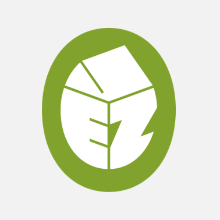Motivation
With a share of 36% of CO2 emissions and an energy consumption of 40%, the construction sector is far from sustainable. The demand for building materials for climate neutral buildings in Europe is huge. The aim of the EU project EASI ZERo is therefore to advance the development of sustainable building materials for energy-efficient buildings for renovation and new construction. EASI ZERo is developing and validating an easy-to-install comprehensive system of sustainable materials for the building envelope to ensure efficient and sustainable energy renovation with a low energy footprint and CO2 emissions close to zero.
What is being developed?
The EASI ZERo system provides a sustainable and comprehensive material solution for the entire building envelope, including facades, roof and window/door openings:
- Insulation made from bio-based materials (mushroom mycelium, wood fibres).
- a sprayable plaster made from recycled materials
- integrated photovoltaics for roof tiles
- windows and doors with frames made of lightweight and biologically produced foam
- a coating that provides a safe, healthy and aesthetic surface
- phase change materials (PCM) for thermal storage layers for indoor comfort
What are the advantages of EASI ZERo solutions?
- Bio-based and recycled materials with a low carbon footprint
- High energy performance
- Compatible with all building types
- Easy installation and de-installation
- Building-level performance assessment over the entire life cycle
- Documented environmental, social and economic impacts
- Energy balance and CO2 emissions close to zero
Tasks of University of Stuttgart
The Materials Testing Institute and the Institute for Construction Materials at the University of Stuttgart are supporting these developments with targeted material and component tests to assess energetic and mechanical performance. The new sustainable materials will be led to a future CE marking. For the preparation of life cycle assessments, product-specific properties will be identified in order to guide the products towards the lowest possible CO2 footprint.
Project Facts:
- 16 partners from 7 European countries
- Project start: December 2022
- Duration: 42 months
- Funding: € 7 million
More information: www.easizero.eu
Kontakt

Jürgen Frick
Dr. rer. nat.Head of Department / Deputy Head of Unit





